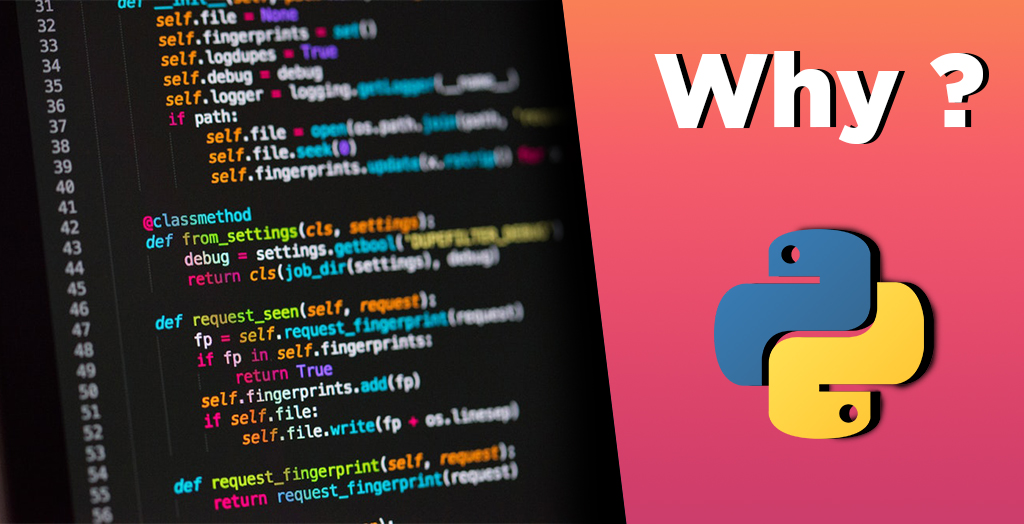In today's rapidly changing technological landscape, keeping up with the latest tools and programming languages is crucial for any developer. Among these, Python is a powerful, versatile, and indispensable tool for modern developers. Known for its simplicity, readability, and extensive array of libraries, Python has become a favorite in various domains, from web development to data science. This blog explores why Python is a must-have skill for developers and delves into its wide-ranging applications.
Why Python?

1. Simplicity and Readability Python's syntax is designed to be intuitive and easy to read, closely resembling natural language. This makes it an ideal choice for both beginners and seasoned developers. Python's design philosophy emphasizes code readability, which helps reduce the complexity of writing and maintaining code. Unlike languages with complex syntax, Python allows developers to concentrate on solving problems rather than getting bogged down by language intricacies.
2. Versatility and Wide Range of Applications Python's versatility is one of its greatest strengths. It is used across various fields, including web development, data analysis, artificial intelligence, machine learning, scientific computing, and automation. This means that mastering Python can open doors to multiple career opportunities. Whether it's building a web application, analyzing data, or developing an AI model, Python offers the necessary tools and libraries to accomplish the task efficiently.
3. Extensive Libraries and Frameworks Python's rich ecosystem of libraries and frameworks greatly enhances its capabilities. For web development, frameworks like Django and Flask simplify the creation of robust and scalable web applications. In the realms of data science and machine learning, libraries such as NumPy, pandas, sci-kit-learn, and TensorFlow provide powerful tools for data manipulation, analysis, and model building. These libraries save developers countless hours of coding and debugging, enabling them to focus on higher-level problem-solving.
4. Community Support and Documentation Python has a large and active community of developers who contribute to its continuous improvement and provide extensive support. The Python Software Foundation, along with numerous online forums, tutorials, and documentation, ensures that developers have access to the resources they need to learn and troubleshoot. This strong community support makes it easier for developers to find solutions, share knowledge, and stay updated with the latest trends and best practices.
Python in Action: Real-World Applications
1. Web Development Python's simplicity and powerful frameworks have made it a popular choice for web development. Django, a high-level web framework, allows developers to build secure, scalable, and maintainable web applications quickly. Flask, a micro-framework, provides the flexibility to create smaller applications or prototype ideas rapidly. Companies like Instagram, Pinterest, and Spotify have leveraged Python's web development capabilities to build dynamic and high-traffic websites.
2. Data Science and Analytics In the era of big data, the ability to analyze and interpret data is invaluable. Python's data science libraries, such as NumPy and pandas, enable developers to manipulate and analyze large datasets efficiently. Matplotlib and Seaborn are powerful tools for data visualization, helping developers present insights. Python's versatility extends to machine learning, with libraries like sci-kit-learn and TensorFlow offering tools to build and train predictive models. Python's role in data science is so prominent that it has become the language of choice for many data scientists and analysts.
3. Artificial Intelligence and Machine Learning Python's simplicity and extensive libraries make it an ideal language for artificial intelligence (AI) and machine learning (ML) development. TensorFlow, Keras, and PyTorch are widely used frameworks that simplify the creation and deployment of machine learning models. These tools are used in various applications, from natural language processing and image recognition to autonomous vehicles and recommendation systems. Python's role in AI and ML is further solidified by its integration with popular platforms like Google Cloud, AWS, and Azure, making it easier to deploy models at scale.
4. Automation and Scripting Python's ease of use and powerful libraries make it an excellent choice for automation and scripting tasks. Developers can automate repetitive tasks, such as file manipulation, web scraping, and data entry, saving time and reducing errors. Python's versatility also extends to DevOps, where it is used for writing scripts to automate deployment, testing, and monitoring processes. This capability is particularly valuable in large-scale systems where manual intervention is impractical.
5. Scientific Computing Python is widely used in scientific computing due to its simplicity and powerful libraries. Libraries like SciPy and SymPy provide tools for scientific and mathematical computations, while BioPython and AstroPy cater to specialized fields like bioinformatics and astronomy. Python's integration with tools like Jupyter Notebooks allows researchers to document and share their work seamlessly, fostering collaboration and reproducibility in scientific research.
Learning Python: Tips and Resources

1. Start with the basics for beginners, starting with the basics of Python syntax and programming concepts is crucial. Online platforms like Codecademy, Coursera, and Udemy offer comprehensive courses that cover Python fundamentals. Books like "Automate the Boring Stuff with Python" by Al Sweigart provide practical exercises to reinforce learning.
2. Hands-On Practice Practical experience is essential for mastering Python. Engage in hands-on projects that align with your interests, whether it's web development, data analysis, or automation. Platforms like GitHub offer a plethora of open-source projects to contribute to and learn from.
3. Utilize Online Resources The Python community is a treasure trove of resources. Websites like Stack Overflow, Reddit, and Python's official documentation provide answers to common questions and detailed explanations of Python's features. Participating in online forums and attending meetups or conferences can also help you stay connected with the Python community.
4. Explore Advanced Topics Once you're comfortable with the basics, explore advanced topics and libraries that align with your career goals. For data science enthusiasts, delving into libraries like NumPy, pandas, and scikit-learn is beneficial. For web developers, mastering frameworks like Django and Flask will enhance your skill set.
5. Stay Updated Technology is constantly evolving, and staying updated with the latest trends and best practices is essential. Follow Python-related blogs, podcasts, and YouTube channels to keep abreast of new developments. Engaging in continuous learning will ensure that your Python skills remain relevant and up-to date.
Conclusion
In conclusion, Python's simplicity, versatility, and extensive libraries make it a must-have skill for modern developers. Its wide range of applications, from web development and data science to artificial intelligence and automation, ensures that Python remains at the forefront of technological innovation. By mastering Python, developers can unlock a world of opportunities and stay ahead in the ever-evolving tech landscape. Whether you're a beginner or an experienced developer, investing time in learning Python will undoubtedly pay off, propelling your career to new heights.
Share if you like it!
